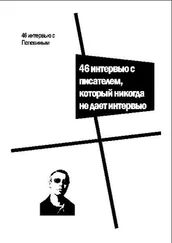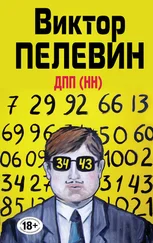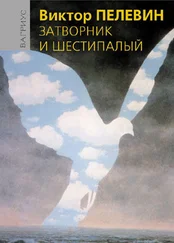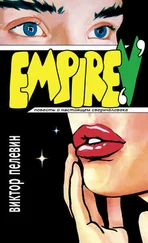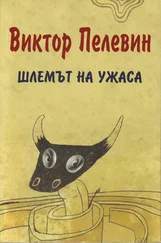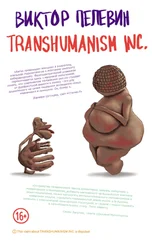Виктор Пелевин - Buddha's Little Finger
Здесь есть возможность читать онлайн «Виктор Пелевин - Buddha's Little Finger» весь текст электронной книги совершенно бесплатно (целиком полную версию без сокращений). В некоторых случаях можно слушать аудио, скачать через торрент в формате fb2 и присутствует краткое содержание. Жанр: Современная проза, на английском языке. Описание произведения, (предисловие) а так же отзывы посетителей доступны на портале библиотеки ЛибКат.
- Название:Buddha's Little Finger
- Автор:
- Жанр:
- Год:неизвестен
- ISBN:нет данных
- Рейтинг книги:5 / 5. Голосов: 1
-
Избранное:Добавить в избранное
- Отзывы:
-
Ваша оценка:
- 100
- 1
- 2
- 3
- 4
- 5
Buddha's Little Finger: краткое содержание, описание и аннотация
Предлагаем к чтению аннотацию, описание, краткое содержание или предисловие (зависит от того, что написал сам автор книги «Buddha's Little Finger»). Если вы не нашли необходимую информацию о книге — напишите в комментариях, мы постараемся отыскать её.
Buddha's Little Finger — читать онлайн бесплатно полную книгу (весь текст) целиком
Ниже представлен текст книги, разбитый по страницам. Система сохранения места последней прочитанной страницы, позволяет с удобством читать онлайн бесплатно книгу «Buddha's Little Finger», без необходимости каждый раз заново искать на чём Вы остановились. Поставьте закладку, и сможете в любой момент перейти на страницу, на которой закончили чтение.
Интервал:
Закладка:
‘Certainly I believe it. On that platform today I even experienced a similar feeling myself. And yet…’
Suddenly I no longer understood what exactly I wanted to say. Silence hung over the table, broken only by the tinkling of the spoon with which Anna was stirring her coffee.
‘Well, in that case, just what does a Red commander look like?’ asked Chapaev, brushing the cigar ash from the flap of his jacket.
‘Furmanov,’ I replied.
‘Forgive me, Pyotr, but that is the second time today that you have mentioned that name. Who is this Furmanov?’
The gentleman with the voracious eyes,’ I said, ‘who addressed the weavers after me.’
Anna suddenly clapped her hands.
‘That reminds me,’ she said, ‘we have entirely forgotten about the weavers, Vasily Ivanovich. We should have paid them a visit long ago.’
Chapaev nodded.
‘Yes, yes,’ he said, ‘you are quite right, Anna. I was just about to suggest it myself, but Pyotr set me such a puzzle that everything else entirely slipped my mind.’
He turned towards me. ‘We must certainly return to this topic. But for the present, would you not like to keep us company?’
‘Yes, I would.’
‘Then, forward,’ said Chapaev, rising from the table.
We left the staff carriage and went towards the rear of the train. Events now began to seem even stranger to me: several of the carriages through which we walked were dark and seemed entirely empty. There was not a single light burning anywhere and not a sound could be heard behind their closed doors. I could not really believe that there were Red Army soldiers sleeping behind those walnut panels which reflected the glow of Chapaev’s cigar in their polished surface, but I tried not to ponder too much on the matter.
One of the carriages did not end in the usual little lobby, but in a door in the end wall, beyond the window of which the dark winter night rushed away from us. After fumbling briefly with the lock the Bashkir opened it and the corridor was suddenly filled with the sharp clattering of wheels and a swarm of tiny, prickly snowflakes. Outside the door there was a small fenced-in area beneath a canopy, like the rear platform of a tram, and beyond it loomed the heavy carcass of the next carriage. There was no way of crossing over to it, so it remained unclear just how Chapaev had intended to pay a visit to his new men. I followed the others out on to the platform. Leaning on the railing, Chapaev drew deeply on his cigar, from which the wind snatched several bright crimson sparks.
‘They are singing,’ said Anna, ‘can you hear?’
She raised an open hand, as though to protect her hair from the wind, but lowered it immediately - her hairstyle made the gesture entirely meaningless. The thought struck me that she must have worn a different style only a very short time before.
‘Can you hear?’ she repeated, turning to face me.
And indeed, through the rumbling of the carriage wheels I could make out a rather lovely and harmonious singing. Listening more closely, I could even catch the words:
Blacksmiths are we, our spirit is an anthill, We forge the keys of happiness. Oh, hammer mighty, rise up higher still, Smite harder, harder yet upon this iron breast!
‘Strange,’ I said, ‘why do they sing that they are smiths, if they are weavers? And why is their spirit an anthill?’
‘Not an anthill, but an anvil,’ said Anna.
‘An anvil?’ I echoed. ‘Ah, but of course. It is an anvil because they are smiths - or rather, because they sing that they are smiths, although in actual fact they are weavers. One devil of a confused mess.’
Despite the absurdity of the text there was something ancient and bewitching about this song ringing out in the winter night. Perhaps it was not the song itself, but the strange combination of innumerable male voices, the piercingly bitter wind, the snow-covered fields and the small stars scattered sparsely across the night sky. When the train curved as it went round a bend we could make out the string of dark carriages. The men travelling in them must have been singing in total darkness - and this filled out the picture, making it even more mysterious and strange. For some time we listened without speaking.
‘Perhaps it is something Scandinavian.’ I said. ‘You know, they had a god there, and he had a magic hammer that he used as a weapon. In the Old Edda saga I think it was. Yes, yes, see how well everything else fits! This dark frost-covered carriage before us, why should it not be Thor’s hammer hurled at some unknown enemy! It hurtles relentlessly after us, and there is no force capable of halting its flight!’
‘You have a very lively imagination.’ Anna replied. ‘Can the sight of a dirty railway carnage really arouse such a train of thoughts in you?’
‘Of course not.’ I said. ‘I am simply endeavouring to make conversation. In actual fact I am thinking about something else.’
‘About what?’ asked Chapaev.
‘About the fact that man is rather like this train. In exactly the same way he is doomed for all eternity to drag after him out of the past a string of dark and terrible carriages inherited from goodness knows whom. And he calls the meaningless rumbling of this accidental coupling of hopes, opinions and fears his life. And there is no way to avoid this fate.’
‘Why not?’ asked Chapaev. ‘There is a way.’
‘Do you know it?’ I asked.
‘Of course.’ said Chapaev.
‘Perhaps you would share it with us?’
‘Gladly.’ said Chapaev, and he clicked his fingers.
The Bashkir seemed to have been waiting for precisely this signal. Setting his lamp on the floor, he ducked nimbly under the railings, leaned out in the darkness over the invisible elements of the carriage coupling and began making rapid movements with his hands. There was a dull clanging sound and the Bashkir returned to the platform with the same alacrity with which he had left it.
The dark carriage wall facing us began slowly receding.
I looked up at Chapaev. He met my gaze calmly.
‘It is getting cold,’ he said, as though nothing had happened. ‘Let us return to the table.’
‘I will follow on after you,’ I replied.
Left alone on the platform, I went on gazing into the distance for some time. I could still make out the singing of the weavers, but with every second that passed the string of carriages fell further and further behind; suddenly they seemed to me like a tail cast off by a fleeing lizard. It was a beautiful sight. Oh, if only it were really possible, as simply as Chapaev had parted from these men, to leave behind me that dark crowd of false identities which had been tearing my soul apart for so many years!
Soon I began to feel cold. Turning back into the carriage and closing the door behind me, I felt my way along by touch. When I reached the staff carriage I felt such a great weariness that without even pausing to shake the snowflakes from my jacket, I went straight into my compartment and collapsed on to the bed.
I could hear Chapaev and Anna talking and laughing in the saloon car.
‘Pyotr!’ Chapaev shouted. ‘Don’t go to sleep! Come and join us!’
After the cold wind which had chilled me through on the platform, the warm air in the compartment was remarkably pleasant. It even began to feel more like water than air, as though at long last I were taking the hot bath I had been dreaming about for so many days. When the sensation became absolutely real, I realized that I was falling asleep, which I might have guessed anyway from the fact that instead of Chaliapin, the gramophone suddenly began playing the same Mozart fugue with which my day had begun. I sensed that I should not on any account fall asleep, but there was no longer anything I could do to resist; having abandoned the struggle, I hurtled down headlong between the minor piano chords into the same stairwell of emptiness which had so astounded me that morning.
Читать дальшеИнтервал:
Закладка:
Похожие книги на «Buddha's Little Finger»
Представляем Вашему вниманию похожие книги на «Buddha's Little Finger» списком для выбора. Мы отобрали схожую по названию и смыслу литературу в надежде предоставить читателям больше вариантов отыскать новые, интересные, ещё непрочитанные произведения.
Обсуждение, отзывы о книге «Buddha's Little Finger» и просто собственные мнения читателей. Оставьте ваши комментарии, напишите, что Вы думаете о произведении, его смысле или главных героях. Укажите что конкретно понравилось, а что нет, и почему Вы так считаете.

